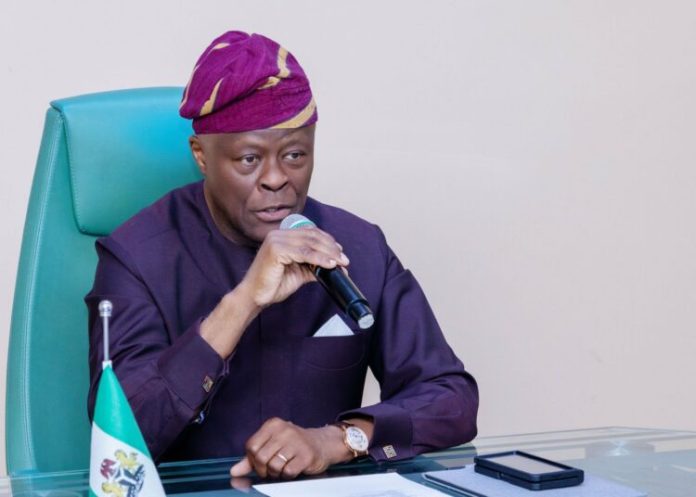The federal government has launched a nine-month initiative allowing citizens to deposit dollar cash into their bank accounts without incurring taxes or penalties, provided the funds are legitimate and meet standard banking requirements.
Minister of Finance and coordinating minister of Economy, Wale Edun, disclosed this to State House correspondents on Thursday after the National Economic Council (NEC) meeting presided over by Vice President Kashim Shettima at the Presidential Villa in Abuja.
The programme, introduced by the Ministry of Finance in collaboration with the Central Bank of Nigeria (CBN), aims to encourage Nigerians holding foreign currency outside the financial system to securely bring those funds into the formal banking sector.
The initiative, effective immediately, seeks to bolster Nigeria’s foreign reserves and stabilise the exchange rate by making foreign currency more accessible within the formal economy.
Edun emphasised that this is an opportunity for citizens to move cash held outside the banking system into secure, regulated accounts without fear of punitive measures.
“This initiative offers a safe, compliant path for Nigerians holding dollar cash to deposit these funds into their bank accounts, adding to our reserves and potentially easing pressures on the exchange rate,” Edun explained.
He underscored that only legitimate funds will qualify, with banks required to verify sources under existing Know Your Customer (KYC) guidelines.
The Finance Ministry emphasised that the initiative not only aids the economy but provides individuals holding foreign currency with a secure and compliant option to utilise their funds within the banking system.
Edun also presented to the Council an update on the government’s ongoing economic reforms.
His briefing addressed the progress made toward reducing economic challenges exacerbated by recent policy changes, implemented under President Bola Tinubu administration
Edun explained that while advanced economies were seeing inflation rates stabilised around 2%, developing countries like Nigeria continue to grapple with high inflation, low growth, and substantial debt.
Against this challenging global economic landscape, Nigeria has embarked on a path to eliminate costly subsidies on petroleum and foreign exchange, reforms expected to save between $15 billion and $20 billion annually, or roughly 5% of the nation’s GDP.
However, the reforms have led to a rise in the cost of living. President Tinubu remains committed to supporting the nation’s most vulnerable through various relief initiatives, Edun said, including a new minimum wage and direct payments to Nigerians on the social register. To date, 5 million households (around 25 million Nigerians) have received financial assistance, with payments verified through biometric identification.
In October, a change required local refineries to pay for crude oil in Naira, enabling the sale of petroleum products in Naira as well.
This move, along with market-based pricing for petroleum and foreign exchange, has generated around N700 billion monthly for the Federation Account, funds Edun noted will be channeled into critical public investments.
Edun also highlighted additional support measures, such as the Consumer Credit Scheme, which has provided N3.5 billion to 11,000 workers for affordable loans.
The Student Loan Scheme, benefitting over half a million students with interest-free loans, has now disbursed N90 billion to institutions and students.
In response to rising food prices, the government is allowing millers to import brown rice duty-free, targeting a shortfall of about 2.5 million metric tons. Agricultural support initiatives, including subsidies on fertilizer, herbicides, and seeds, aim to bolster production of wheat and rice during the upcoming dry season.
Small and micro-businesses are also receiving assistance through low-interest loans, with N50 billion in grants distributed to help entrepreneurs with working capital needs.
Edun added that the reforms represent a continuous effort to address the high cost of living and strengthen Nigeria’s economic foundation.
LEADERSHIP


